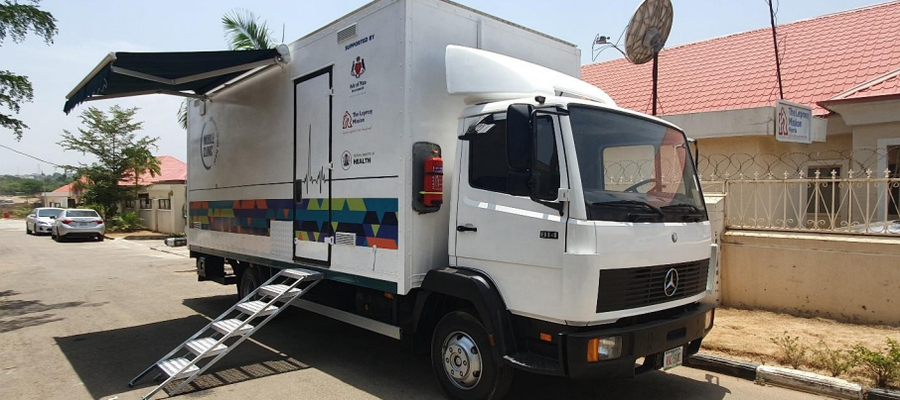Mobile prosthetics unit in Nigeria

Having access to good healthcare is crucial for treating leprosy and in helping patients avoid preventable disabilities. In many parts of the world, access to medical care is difficult; there are often very few doctors available, or the hospitals and surgeries are not close to where people live. Women and children, especially, can struggle to travel long distances to clinics.
The Leprosy Mission’s mobile clinics take medical care to where the need is, travelling around districts where there is a need for leprosy support, but no local provision. Providing a combination of medical expertise and pastoral care, they are a vital part of TLM’s mission.
Wheels that Heal
Nigeria is about four times the size of the UK, but, with 190 million inhabitants, it is the most populous country in Africa. Half of this population lives in extreme poverty on less than $1.90 per day, and the inequality of income and opportunities is growing rapidly.
The healthcare system faces huge challenges, and many people do not have access to modern healthcare. There are only 0.4 doctors per 1,000 people (compared to 2.8 per 1,000 in the UK). This in a country where 2,424 new cases of leprosy were diagnosed in 2019.
In this context, mobile clinics are a practical solution, taking care to where it is needed. The Leprosy Mission Nigeria provides basic healthcare in leprosy settlements in the suburbs around Nigeria’s capital, Abuja, through a mobile clinic.
The ‘Wheels that Heal’ project uses a large, specially equipped van to bring health workers and drugs to people affected by leprosy who would otherwise have to travel long distances to get care. Medical workers clean wounds, provide new bandages, and offer advice.
Helping TLM reach our goals
Taking medical care to the communities means that those affected by leprosy are able to access support easily. This helps The Leprosy Mission reach its goal of zero transmission, and zero disability from leprosy; early diagnosis means that treatment is more straightforward, and disabilities can be prevented through early intervention.
Mobile clinics and Covid-19
During the Covid-19 pandemic, the clinics also provided a practical way of getting information and practical help about the virus to communities in remote areas.